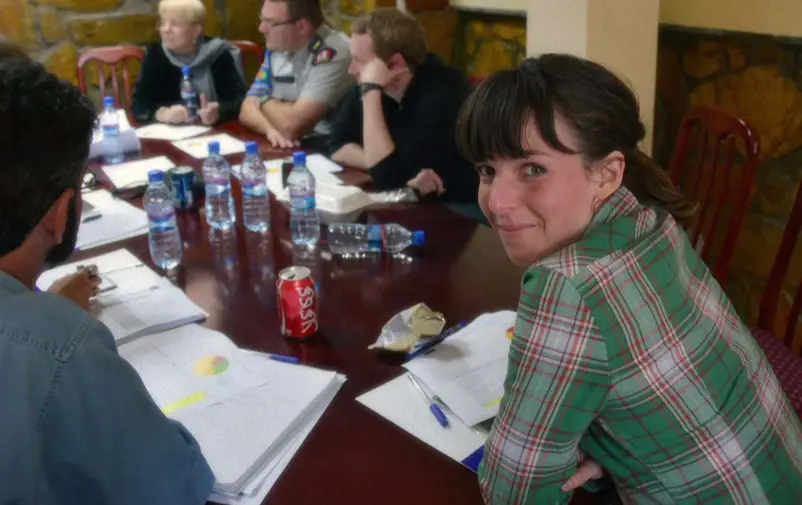
The 1325 Scholarship was established in memory of gender equality expert and peacebuilder Zaida Catalán.
– The Yazidi Organization for Documentation is an independent non-governmental organization in Iraq. It seeks to create community awareness of human rights, and to document and address cases of human rights violations. We especially monitor the situation for the Yazidi minority in Iraq, which was subjected to ethnic cleansing by the Islamic State (IS). We offer support to survivors from the genocide, in collaboration with other organizations and donors. And we document cases of missing persons and mass graves. We also carry out peacebuilding activities in order to strengthen social cohesion between different groups in the Iraqi society, and we especially target young people. I am the founder and coordinator of the organization, which is based in the Sinjar area in northern Iraq where most of the Iraqi Yazidis live.
– I was born in Dokry Village, north of Sinjar mountain. I stayed there until I finished high school. Then I moved to the city of Mosul to study civil engineering at the university. But before I could finish my studies, IS took control of Mosul. I had to flee to the city of Dohuk in the Kurdish-controlled area of northern Iraq. In 2016 I was finally able to graduate from Dohuk University. As the Sinjar area was now liberated from IS, I decided to move back to where I came from. I started volunteering for different civil society organizations and youth organizations, to help others return back to their homes in Sinjar, and to help out in refugee camps. Then I founded The Yazidi Organization for Documentation. I especially like to organize peacebuilding workshops with young people from different religions and backgrounds who all live in Sinjar. I want to support my community to live together in love and peace.
– The security situation is still very bad, because of different armed groups in the area. 70 percent of the population remains displaced. People lack access to basic social services, and the city needs to be rebuilt as most of the infrastructure has been destroyed.
– When my region of Iraq was conquered by IS, some local people joined the terror group and participated in the killing of religious minorities. The trust between different religious and ethnic groups was lost. We need to rebuild trust and connections between different communities now. I want to gain skills and improve my practical ability to develop my local organization, to be able to make a difference, strengthen social cohesion, and encourage young people to participate in peacebuilding.
MORE FROM HOME
Are you a young peacebuilder at the beginning of your career with a strong commitment to women, peace and security? Do you have experience working in this field in the Democratic Republic of Congo or Afghanistan and want to take your commitment to the next level? Then you have the opportunity to apply for the 1325 scholarship for 2026.
2025-11-06 15:30FBA has both increased and adapted its work in Ukraine in the wake of Russia's invasion.
FBA in UkraineKlara Grenhagen works as a specialist at FBA's Africa unit with a focus on dialogue, reconciliation and peace processes.
More about our expertsFBA is part of Sweden’s development aid within the area of peace and security
Read more about the countries where we work